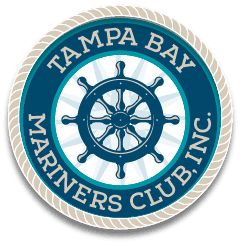New Purser
Jennifer Seipel, Esq. with Hamilton, Miller, and Birthisel Law has agreed to serve; replacing Carrie “CJ” Stevens. Thank you “CJ” for serving as our purser.
We still have openings for our Marine Insurance Seminar Committee for 17-18 January, 2023. Come aboard and have a say in the topics and speakers.
Nautical Lingo
“Rise and Shine” The day on a Man of War ship began with washing down the decks, and shining up the brass and bright work.”
“Shake a leg or show a leg” When ships were in port wives and ladies of easy virtue were allowed aboard. When the boson’s mate did his rounds he checked for stocking leg or a hairy leg. The hairy legged sailor had to go to work. Lord Nelson put a stop to the practice of having women aboard while in port.
Quotes from famous sailors
“Ports are no good – ships rot, men go to the devil.”
Joseph Conrad
“Girls are taught to play houses, not boat.”
Tom Colvin, N.A., sailor
“The man who would be fully employed should procure a ship or a women, for no two things produce more trouble.”
Plautus (254-184 B.C.)
“Follow Odysseus example: “Put wax in your ears, and get underway.”
April history:
Declaration of Arbroath on April 6, 1320:
“For so long as there shall be but one hundred of us remain alive we will never consent to subject ourselves to the domination of the English. For it is not riches, neither honour, but it is freedom alone that fight and contend for, which no honest man will lose with his life.”
The above was signed by 8 earls and 32 barons on April 6, 1320 at the monastery of Arbroath, in Scotland. They sent the above to Pope XXII. In 1306 Robert the Bruce declared himself king of Scotland.
In 1998 the United States Congress resolved that the U.S. Declaration of Independence has been remodeled on the Declaration of Arbroath. Further resolved that April 6 was officially National Tartan Day in commemoration of that famous document.
Roanoke Voyages, 1584: Captains Arthur Barlow and Philip Amidas
“On April 27, 1584 Captains Philip Amidas and Arthur Barlow sailed two barks across the Atlantic to explore the North American coast for Sir Walter Raleigh. The explorers landed on July 13, 1584, on the North Carolina coast, about 20 miles north of Roanoke Island. Barlow describes it as,
“Very sandie and low towards the waters side, but full of scuppernongs (grapes).” Amidas and Barlow presented Raleigh with a glowing report. They had arrived in mid-summer and the natives, because it was the season of plenty, welcomed the visitors.
Captains Barlow and Amidas discovered Albemarle Sound. [The first time I sailed on Albemarle Sound was with two-time circumnavigator Jim Huber on his Swan ketch CHAMPAGNE. We were on a delivery trip from Ft Lauderdale to Chestertown MD.]
Two Indians, Wanchese and Manteo, were taken back to England so that Raleigh could learn more about the character of the coastal Native Americans.
Raleigh sent a party of 108 settlers to Roanoke Island the following spring. A colony was established on the north end of Roanoke Island, and Ralph Lane was made Governor.”
The above is from Dozier’s Waterway Guide, 2010, page #158, Roanoke Island, NC History.
The Maritime Museum Library in Greenwich, England has two books on the Roanoke Voyages. The last time I was there (over 30 years ago) I had the opportunity to review them.
Captain Arthur Barlow’s description of the flora and fauna was the most complete description of North America at the time. I am related through my grandmother Hattie Barlow. My father was named after her brother Arthur Barlow. Since my father is no longer living I do not use the “Jr.”
Arthur Barlow Campbell, CPCU, ARM, AMIM
Skipper
loadmasterart@comcast.net

